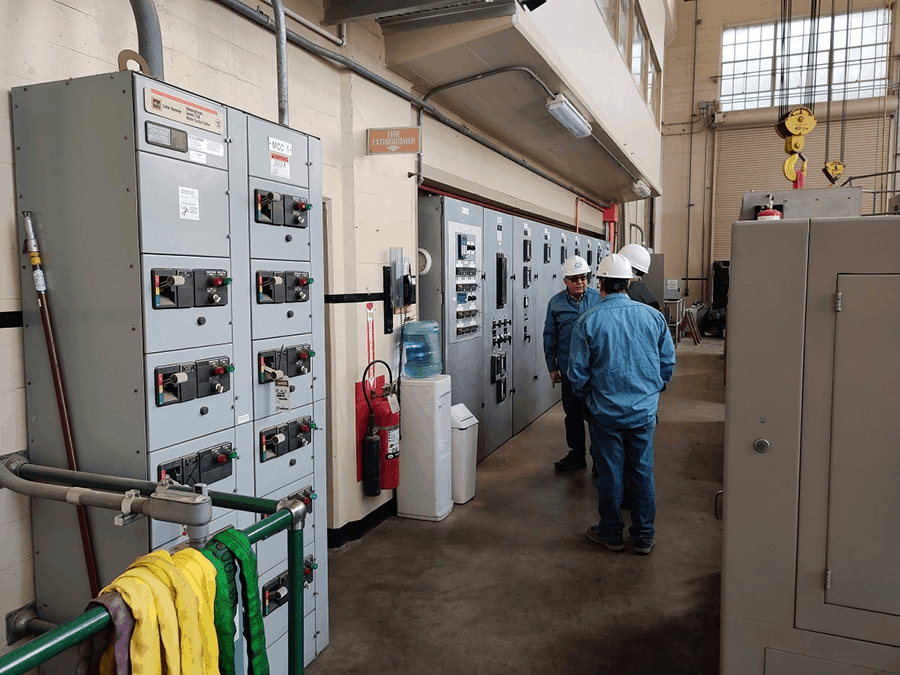There’s no denying that engineering work experience trumps a formal education any day, and it’s critical for the advancement of your career.
That’s why employers crave seasoned professionals rather than fresh-faced Ivy League grads. After all, getting newbie engineers up to speed can be quite the ordeal.
But let’s not jump the gun. First, let’s dive into the nitty-gritty of formal engineering education and its limitations.
The flaws in formal engineering education

University-based engineering education has its fair share of flaws, and I’ve got plenty to say on the subject. Now, I’m not saying it’s completely awful – you do get out what you put in. However, for eager, young students, it’s tough to make the most of the experience, especially when the system hasn’t changed much in decades.
To truly excel in school, you’ll need to immerse yourself in real-world engineering. Theoretical learning and problem-solving only take you so far. Here’s my advice:
- Dive into real-world engineering projects through books and online resources
- Study and grasp real-world designs in your field
- Chat with experienced engineers and soak up their wisdom
Doing all this will help you connect the dots between your classroom lectures and the real world. When I revisited my college textbooks after joining the workforce, everything suddenly clicked. And now, let me shed some light on the four main issues with traditional classroom learning.
#1 Painting with broad strokes
Education gives you a general rundown of the tools and techniques needed to tackle engineering problems. You know, like using equation X to solve for variable Y.
But the working world is far from a textbook fairytale. Simple problems with clear-cut solutions are rare. Instead, you’ll need to piece together intricate puzzles through thorough investigation. Real-world issues tend to be vague and riddled with missing information.
Unfortunately, most professors don’t teach this way, leaving students ill-prepared to apply equations and engineering principles effectively.
#2 Playing it safe
Mistakes in engineering are bound to happen. However, seasoned engineers usually make fewer blunders and are more willing to take on gutsy projects without breaking a sweat.
Some young engineers might waltz out of school feeling invincible since their education shielded them from the chaos of the working world. But reality has a way of grounding you. Experience is the key to building the confidence you need to tackle bigger, more daunting projects.
#3 Getting specialized
During your school days, you might spend 1,000 hours studying a particular topic, including class time, homework, and studying.
In the workforce, you’ll clock in over 10,000 hours sharpening your skills in a specific area. Day after day, you’ll apply theories and delve into every corner of your chosen field. You’ll also embark on endless rabbit holes during project designs and evaluations.
In a nutshell, work experience helps you specialize even further. And that’s the experience you need to stand out.
#4 Soft skills? What soft skills?
Classrooms don’t exactly teach the soft skills needed for effective technical communication. I’m talking about learning to interact with various players in your profession, like:
- Managers
- Colleagues
- Tradesmen
- Clients
- The public
From one-on-one conversations to public speaking, and from emails to report writing, mastering these skills is crucial for a thriving career, especially as you climb the ladder. To hone your soft skills, check out these articles:
- 12 engineering writing tips you need to know
- Engineering writing style guide – 6 things to know
- 12 ways to improve public speaking skills for engineers
A proposal for greater education requirements in engineering licensure
Let me tell you about the NCEES, a national nonprofit organization responsible for overseeing the professional licensure of engineers. A few years ago, they wanted to make a Master’s degree mandatory for licensure. The idea was to elevate the profession, but it never came to fruition.
So, why am I bringing this up now? Well, because it’s the perfect time to revisit the proposed requirement in light of real-world engineering work experience.
I get that some engineers might be all for this proposal. After all, it creates more barriers to entry, much like with medical doctors. Fewer engineers mean higher demand for your skills, right? But let’s not get ahead of ourselves…
Breaking down the Master’s degree requirement
Picture this: you’ve been a practicing engineer for over 20 years. A Master’s degree isn’t going to teach you anything new that you can apply to your job. If you need a refresher, you can always pick up a graduate-level book.
We’re living in a world where the internet has revolutionized how we acquire knowledge. Yet, universities are still operating like they did centuries ago. I’m not shelling out big bucks to a university for learning what I’m already doing, just at a less convenient time. I learn way better in the real world, using textbooks as a supplement.
I get that more hoops for engineers to jump through might raise the profession’s prestige. It’s like protecting the “engineer” title. But is it truly necessary?
Learning versus continued education
The million-dollar question is, will the quality of engineering work improve with a Master’s degree requirement? I say, “Absolutely not.”
Instead, let’s add more years of advanced work experience before granting licensure. This way, we’ll have more skilled engineers, which leads to better designs.

Important Note: Education isn’t one-size-fits-all. Your learning style depends on your personality. Some folks need guidance, while others thrive on their own. Your attitude towards learning dictates whether you’ll become a 10x engineer.
The experienced contractor versus an inexperienced engineer

Eventually, every fresh-faced engineer will have to go head-to-head with a seasoned contractor. I remember my first time discussing my design with a contractor who had over 40 years of experience.
Initially, I felt like a hotshot, thinking I knew all there was to know in my field. Boy, was I in for a reality check.
When the contractor questioned my design, my confidence crumbled. I tried to defend it, but I knew I was on thin ice. He effortlessly dissected the real-world application of my design, grinning all the while.
This guy had built more large-scale engineering projects than any professor or engineer I’d ever met. He’d seen it all and could sniff out bullshit from a mile away. And there I was, a newbie engineer, trying to question decades of solid design.
Don’t get me wrong; questioning someone is perfectly fine. You should always ask questions if you’re unsure. But I couldn’t back up my claims at all.
The bottom line is, experience trumps any degree or letters after your name. When I gained more experience, I was finally able to defend my designs against even the best in the business.
The success of Elon Musk and SpaceX

Elon Musk, the man behind SpaceX, isn’t your typical rocket engineer. In fact, he doesn’t even have a formal engineering degree! But what he does have is a burning passion for learning and a hands-on approach to the products he creates.
When Musk founded SpaceX, he brought together some of the most brilliant minds in rocket engineering. He eagerly absorbed their knowledge while devouring heaps of rocket design textbooks on his own time.
Just 15 months after SpaceX’s inception, Elon was ready to launch the Falcon 1, his first rocket. It took four nail-biting attempts before the Falcon 1 finally reached orbit. Had that fourth launch failed, SpaceX would have been history.
This story highlights the importance of real-world engineering experience. Only engineers with hands-on rocket know-how could have refined the Falcon 1. That’s because learning from engineering failures is the most effective way to grow.
Elon Musk’s view on the current education system
Elon Musk has been quite outspoken about his dissatisfaction with the current education system. He said,
“I think college is basically for fun and to prove that you can do your chores, but they’re not for learning.”
He even hopes that Tesla will eventually ditch the university degree requirement, calling it “absurd.” Instead, he wants the primary criteria at his companies to be “exceptional ability.”
Elon’s perspective is clear: “I don’t consider going to college evidence of exceptional ability.” This viewpoint shines through in his search for talent at Tesla’s AI division.
“A Ph.D. is definitely not required,” Musk wrote in a follow-up tweet. “All that matters is a deep understanding of AI and the ability to implement (neural networks) in a way that is actually useful (the latter point is what’s truly hard). Don’t care if you even graduated high school.”
In a nutshell, it’s all about what you can do – and doing it well!
Importance of practicing engineering in the real world
Engineering in the real world demands a different set of skills than what you learn in a classroom. When making design decisions, you need to consider practical aspects like:
- Will it fit?
- Which physical elements will cause disturbance (e.g. heat, wind, dust, etc.)?
- Is it safe?
- Which factor of safety should I use?
- Will this assumption lead to problems?
- How much will this decision cost?
- Will this decision extend the project deadline?
Only hands-on engineering experience can help you address these questions effectively.
Conclusion
Formal education is a fantastic starting point, but it’s your experience as a working engineer that truly shapes your career. Experience shows you the ropes on how to use that knowledge you’ve soaked up.
Imagine it like learning to play basketball. You can practice those snazzy moves in an empty gym with a coach, but stepping onto the court with a real opponent and a wild crowd? That’s a whole new level! Those smooth moves you nailed in practice probably won’t cut it.
But hey, with experience, you’ll learn to tweak your moves when the game’s heat is on. You’ll get to know different defensive strategies and figure out how to smash ’em with the right moves.
So, just like honing your skills on the court, the key to mastering engineering is diving into real-world challenges.
What are your thoughts on the importance of engineering work experience compared to formal education? Why do you think hands-on experience is crucial in the field of engineering?
